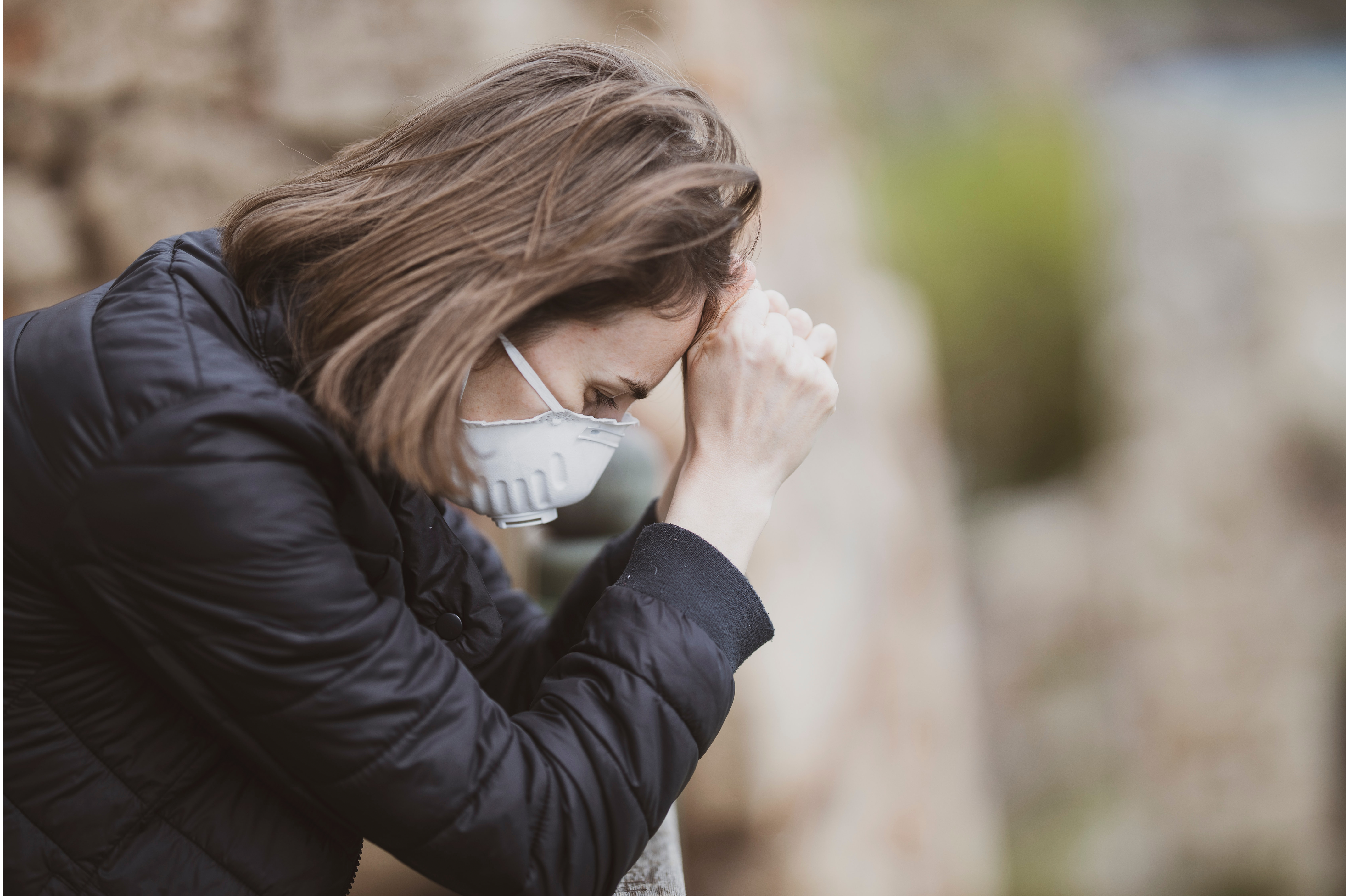The impact of pandemics on mental health has been demonstrated during the Spanish influenza outbreak of 1918-1919 and the SARS (Severe Acute Respiratory Syndrome) outbreak. During both of these pandemics, there were reports of increased anxiety, depression, suicide, and other mental health problems. During COVID-19, we are experiencing similar mental health problems with symptoms of anxiety, depression, and substance use in adults increasing significantly from pre-pandemic levels. Social isolation appears to be a significant contributing factor. For example, The Kaiser Family Foundation reports that those who sheltered in place during COVID-19 experienced greater concern and worry over the illness than those who did not socially isolate. Older adults may be particularly susceptible to the effects of social distancing and isolation.
While it is a common misperception that older adults fear death, a pandemic may incite fear of dying and precipitate or exacerbate mental health problems, including cognitive impairments. SARS-Co-V-2, the virus that causes COVID-19, might infect the brain or trigger immune responses, negatively impacting brain function and mental health. Although public health mitigation strategies, such as New York State Governor Andrew Cuomo’s Matilda’s Law - which directs individuals over 70 to stay home and limit visitation - were designed to protect the older adult, they may have a cascading effect on the deterioration of mental health. For example, older adults that have lost friends or family members to COVID-19 may have limited support available during bereavement due to social distancing.
COVID-19 has forced a rethinking of healthcare delivery. While ad hoc measures - such as telemedicine platforms - may have alleviated some challenges to meeting a visit requirement, these types of solutions are not always optimal for older adults who benefit greatly from hearty social interaction. Older adults may have greater resilience in a crisis than younger adults, simply due to their lived experience. The pandemic has highlighted the need for a better understanding of factors that shape mental health in the aging adult, so we may harness the strength of this population rather than incite despair.
References:
CDC (2020a). National Center for Health Statistics. Indicators of anxiety or depression based on reported frequency of symptoms during the last 7 days. Household Pulse Survey. Atlanta, GA: US Department of Health and Human Services. https://www.cdc.gov/nchs/covid19/pulse/mental-health.htm
CDC (2020b). National Center for Health Statistics. Early release of selected mental health estimates based on data from the January–June 2019 National Health Interview Survey. Atlanta, GA: US Department of Health and Human Services. https://www.cdc.gov/nchs/data/nhis/earlyrelease/ERmentalhealth-508.
Cheung, Y.T., Chau, P.H. and Yip, P.S.F. (2008). A revisit on older adults suicides and Severe Acute Respiratory Syndrome (SARS) epidemic in Hong Kong. International Journal of Geriatric Psychiatry, 23, 1231–1238. doi:10.1002/ gps.2056 Douglas, P.K., D
Holmes, E.A., O'Connor, R.C., Perry, V.H., Tracey, I., Wesseley, S., Arseneault, L. (2020, June 1). Multidisciplinary research priorities for the COVID-pandemic: a call for action for mental health science. The Lancet Psychiatry, 7(6), 547-560. doi:10.1016/S2215-0366(20)30168-1
Jemberie, W.B., Stewart Williams, J., Eriksson, M., Grönlund, A-S, Ng, N., Blom Nilsson, M., Padyab, M., Priest, K.C., Sandlund, M., Snellman, F., McCarty, D., & Lundgren, L.M. (2020). Substance use disorders and COVID-19: Multi-faceted problems which require multi-pronged solutions. Frontiers in Psychiatry. https://doi.org/10.3389/fpsyt.2020.00714
Panchal, N., Kamal, R., Orgera, K., Cox, C., Garfield, R., Hamel, L., Muñana, C., & Chidambaram, P. (2020, August 21). The implications of COVID-19 for mental health and substance use. Coronavirus COVID-19. Kaiser Family Foundation. https://www.kff.org/coronavirus-covid-19/issue-brief/the-implications-of-covid-19-for-mental-health-and-substance-use/
Substance Abuse and Mental Health Services Administration. (n.d.). Double jeopardy: COVID-19 and behavioral health disparities for Black and Latino communities in the U.S. https://www.samhsa.gov/sites/default/files/covid19-behavioral-health-disparities-black-latino-communities.pdf
Yeung, D.Y.L. and Fung, H.H. (2007). Age differences in coping and emotional responses towards SARS: a longitudinal study of Hong Kong Chinese. Aging and Mental Health, 11(5), 579–587. doi:10.1080/ 13607860601086355
----

 Donation
Donation
